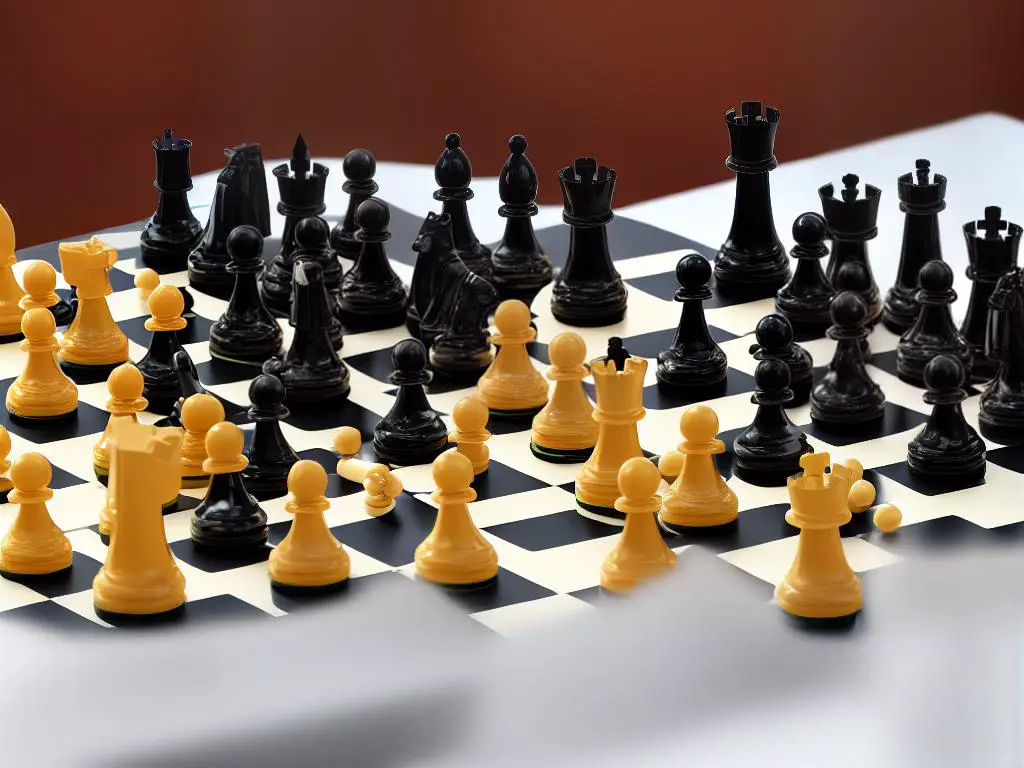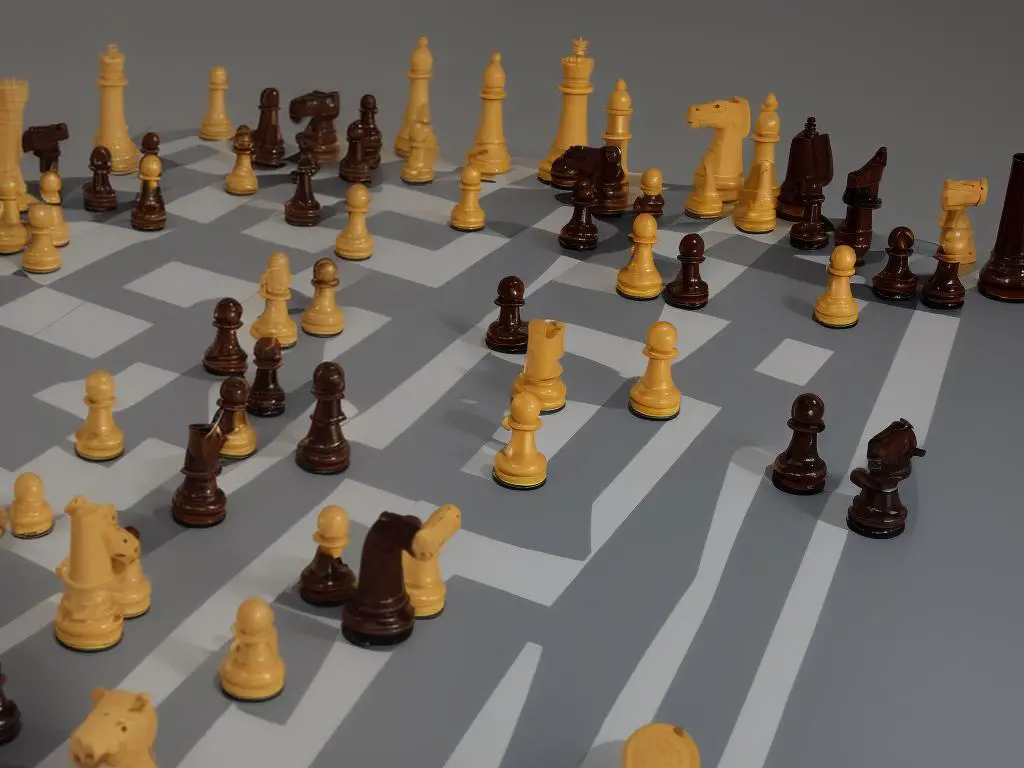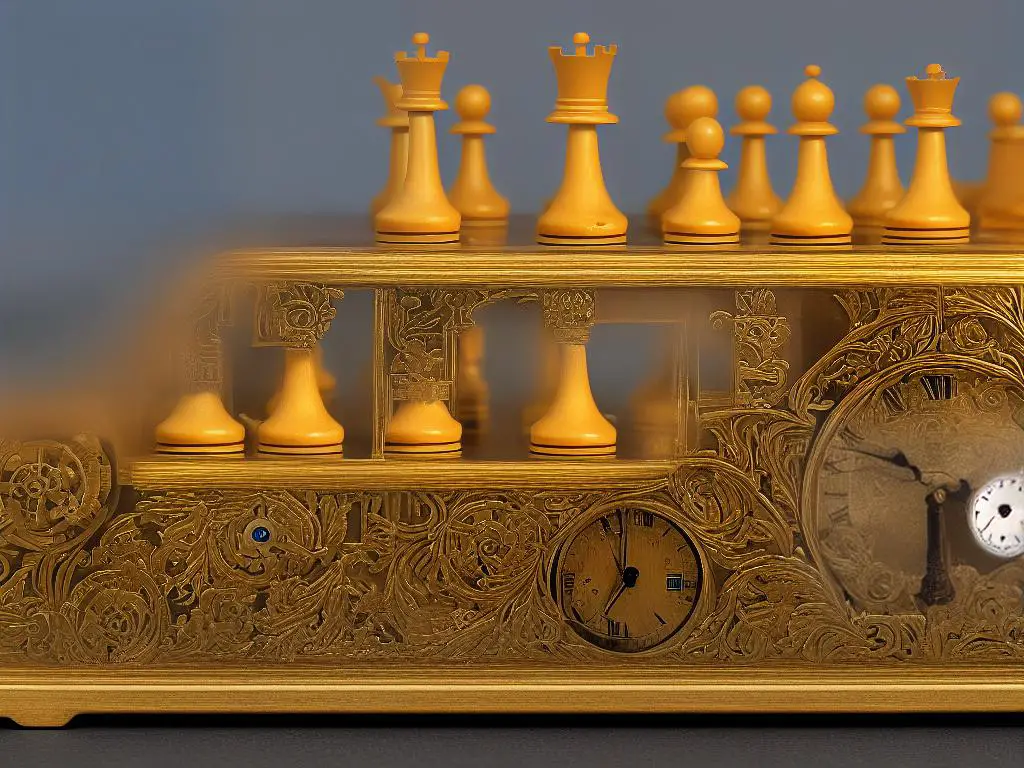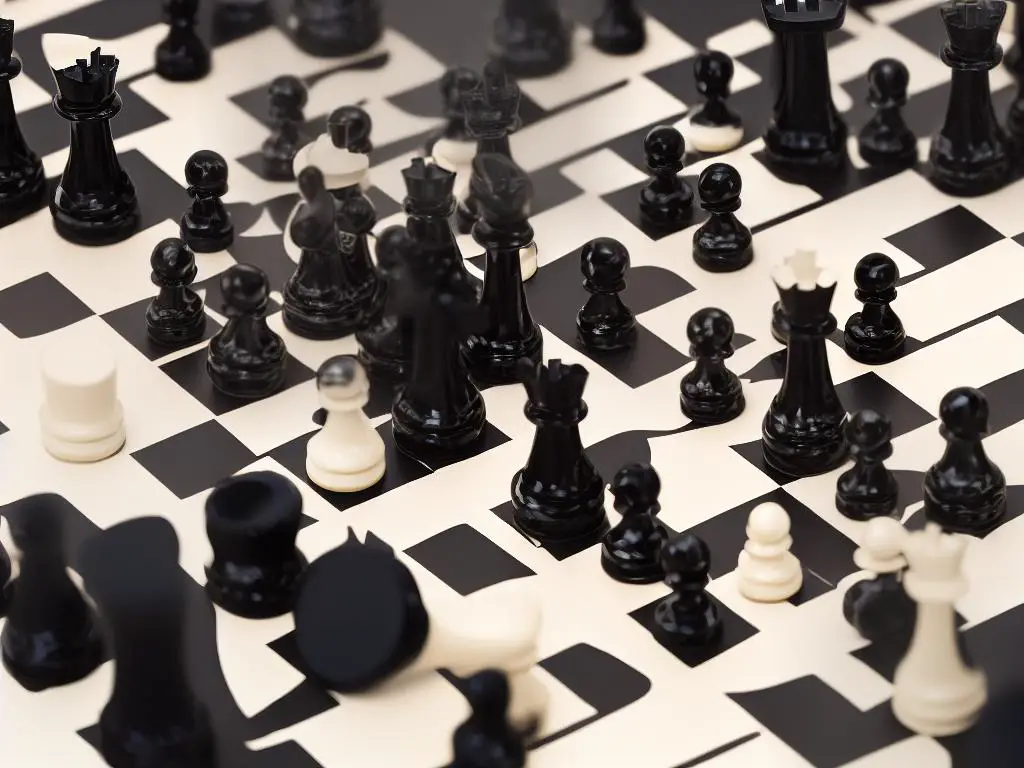Types of Chess Sets: A Visual Guide
Chess, a timeless game of strategy and skill, has captured the attention of players for centuries. With its intricate moves and endless possibilities, it’s no wonder that chess sets have evolved to reflect the diverse interests and preferences of enthusiasts. From traditional wooden sets to modern electronic versions, there is a chess set to suit every taste and style. In this article, we discuss and explore different types of chess sets, enhancing your gameplay experience and allowing you to express your unique personality through this classic game.
Wooden Chess Sets
Wooden Chess Sets: The Timeless Classic
If you’re a fan of the traditional, nothing beats a wooden chess set. The warm, organic feel of the wooden pieces and board simply calls out for a warm beverage and a cozy fireside match with friends or loved ones. To top it off, wooden chess sets come in many styles and materials, offering something for everyone.
Types of Wood Used
While some sets are crafted from more common wood types like pine or walnut, others feature exquisite hardwoods like rosewood or ebony. The type of wood involved contributes not only to the look of the set but also to its durability and feel during play.
Crafting Process & Staunton Design
The crafting process in creating wooden chess sets often involves intricate carving and detailing, giving each piece an aesthetic that adds to its appeal. This craftsmanship is exemplified through the timeless Staunton design – the most famous and widely recognized style of chess pieces. Known for its elegant, balanced shapes, the Staunton design has become the standard for most tournament play, and its classic look never goes out of style.
Unique and Artistic Sets
But the world of wooden chess sets doesn’t end with Staunton. Enter the realm of unique, artistically crafted sets, and you’ll find yourself immersed in a world of imaginative and inspiring creations. From intricate ornamental details to unusual and inventive shapes, these unique chess sets are a testament to the imagination and skill of the artists behind them. Some of these sets are even themed, featuring historical figures, beloved fictional characters, or creatures from mythology.
Choice of Board
Another aspect to consider in wooden chess sets is the board itself. Some sets feature simple, unembellished boards, while others boast intricate inlays, and patterns that can elevate your chess-playing experience. The choice of a board can add personality to the set, and be a deciding factor in choosing the perfect wooden chess set for your home.
Conclusion
In summary, wooden chess sets provide a classic and elegant touch to this age-old game, with a plethora of styles, designs, and materials to fit any taste. Whether you prefer the iconic Staunton design or a one-of-a-kind, artistic set, there’s a wooden chess set out there just waiting for you to make your opening move.
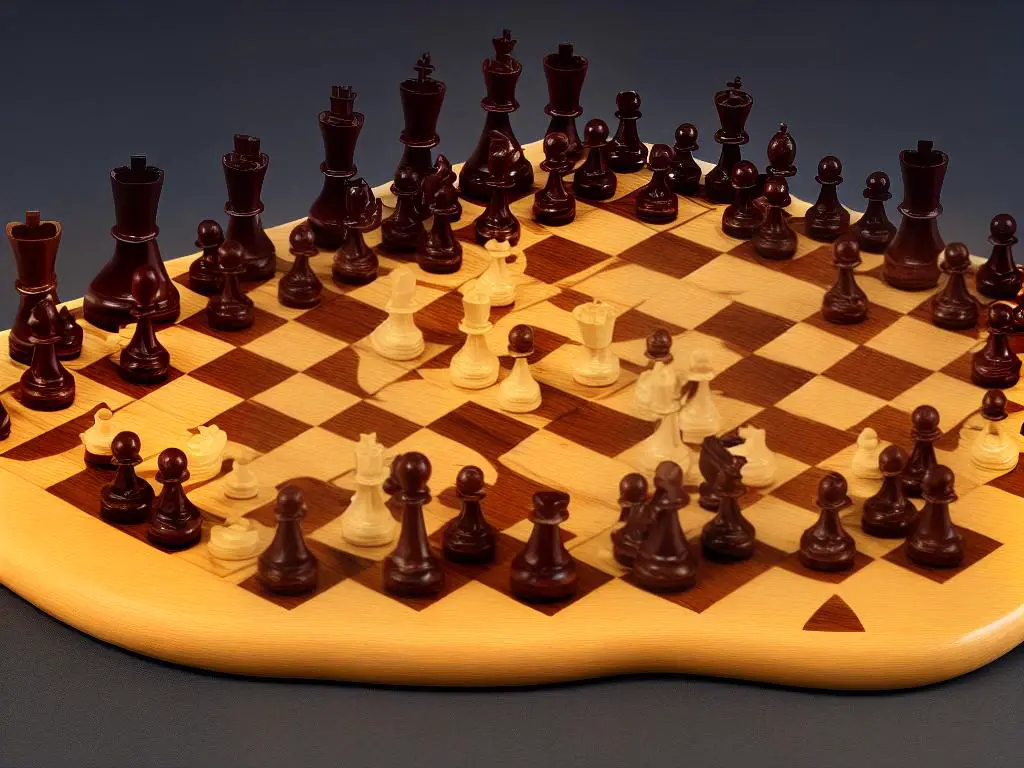
Glass Chess Sets
Glass Chess Sets: A Stunning Fusion of Art and Strategy
Imagine playing a game of chess on a board that seems to float in mid-air, with each move reflecting light and elegance. This is the experience you’ll get when you play on a glass chess set. These sets are an enchanting blend of sophistication, beauty, and strategic thinking that provide an unforgettable gaming experience.
The craftsmanship in creating glass chess sets is truly remarkable. Each piece is meticulously designed and sculpted, reflecting intricate details and an unmistakable sense of luxury. The sets often come in various styles, including classic, modern, and abstract designs, catering to different tastes and preferences.
Glass chess sets are not only visually appealing but also serve as exquisite conversation pieces. They can be displayed anywhere in your home, showcasing your love for the game while adding a touch of artistic flair to your space.
One of the advantages of using glass chess sets is their durability. They are less prone to scratches, dents, or chipping compared to their wooden counterparts, ensuring their pristine look remains intact even after multiple games.
Playing on a glass chess set introduces new strategic elements due to the reflective nature of the board. The shine and transparency of the pieces make for an immersive gaming experience where perception plays a significant role. It adds a layer of fascination to the game as players try to anticipate their opponent’s moves while also trying to decipher the reflections of the pieces on the board.
Whether you’re an experienced chess player or a novice, a glass chess set is a stunning investment that adds an extra touch of elegance to the centuries-old game. Marvel at the exquisite beauty of the pieces as they glide gracefully on the shiny surface of the board, and rediscover the joy and artistry of the game of kings.

Marble and Stone Chess Sets
Marble and Stone Chess Sets: Elevate Your Game to a Whole New Level
Imagine playing chess on a beautifully crafted board made of elegant marble or finely chiseled stone. Not only do marble and stone chess sets add a sense of sophistication and luxury to your game, but they also provide a unique tactile experience, making each encounter memorable and engaging.
Captivating Colors
Marble and stone chess sets are known for their captivating color combinations that add a touch of glamor to your home or yard. From classic black and white to vibrant colors like green, red, or blue, the natural swirls and patterns make each set unique and intriguing. You can be sure that no two sets will ever be exactly alike, making your collection one-of-a-kind.
A New Dimension to Chess
Playing on a marble chess set brings a whole new dimension to your game. The smooth texture of the board and pieces provide a pleasant playing experience, leaving you with a sense of refined elegance. The cool touch of the material adds to the calm and focus required for strategic thinking, keeping you immersed in the game.
Durable and Fit for Outdoors
The weight and durability of marble and stone chess sets make them a popular choice for outdoor chess. It’s the perfect companion for your garden or patio while you relax and unwind, immersed in a riveting game of strategy. The natural materials can withstand the elements, allowing you to enjoy chess in the great outdoors without worrying about potential damage. Plus, their distinct appearance will undoubtedly attract the attention of your guests, sparking conversations and friendly matches.
A Perfect Gift
Finally, marble and stone chess sets make for an excellent gift choice for any chess enthusiast or someone who appreciates artistry and sophistication. Presenting someone with one of these sets will make a lasting impression, creating a cherished sentiment that will be forever associated with the beauty of the game.
Conclusion
Marble and stone chess sets are more than just a way to play the timeless game of chess – they symbolize style, elegance, and luxury. These captivating sets not only enhance your gaming experience but also serve as a stunning conversation piece. So why not make your next game of chess extraordinary with a marble or stone set that will leave you and your opponents in awe?
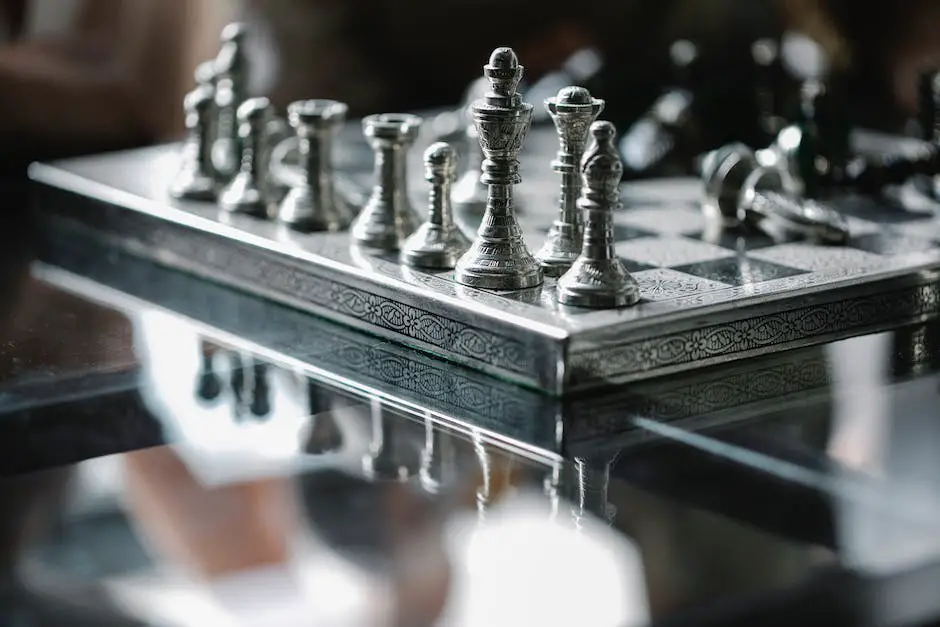
Metal Chess Sets
Metal Chess Sets: Bold Elegance for an Unforgettable Game
Bring a dramatic flair to your next chess match with the bold elegance of Metal Chess Sets. These extraordinary sets are an impressive combination of intricate design, expert craftsmanship, and often a dash of modern style. Ranging from traditional to contemporary, you’ll find metal chess sets to suit every personal aesthetic and level of play.
The Weightiness and Grandiosity of Metal Chess Sets
Metal chess sets carry a certain weightiness, both literally and figuratively, that lends an air of grandiosity to each intense chess battle. You’ll feel every daring move as you and your opponent shift the weighty metal pieces across the board, adding an almost tangible sense of importance to every strategic decision.
The Durability and Detail of Metal Chess Sets
Constructed from materials such as brass, pewter, or stainless steel, these sets are not only beautiful but are also made to withstand generations of gameplay. Some even boast electroplated finishes in gold, silver, or other colors, adding a touch of class and sophistication to an already esteemed game. Additionally, these durable and high-quality materials ensure that your cherished chess set will remain a centerpiece of your collection for years to come.
Delight in the intricate and finely detailed designs found in a wide variety of metal chess sets. From knights that are painstakingly crafted to display lifelike facial features and armor, to pawns that proudly display their regal nature, these sets truly elevate the chess experience.
A Perfect Gift for Chess Enthusiasts
A metal chess set would make a perfect gift for chess enthusiasts, collectors, or anyone who appreciates the finer things in life. Surprise your loved ones with a one-of-a-kind statement piece that they’ll treasure, or treat yourself to a set that embodies your personal style and love for the game.
The Ultimate Must-Have for Discerning Chess Enthusiasts
Don’t hesitate to invest in a metal chess set for a truly unforgettable and enriched chess experience. With the distinct blend of artistry, durability, and an elevated sense of importance, a metal chess set is the ultimate must-have for any discerning chess enthusiast. You’ll never look at our beloved ancient game the same way again.
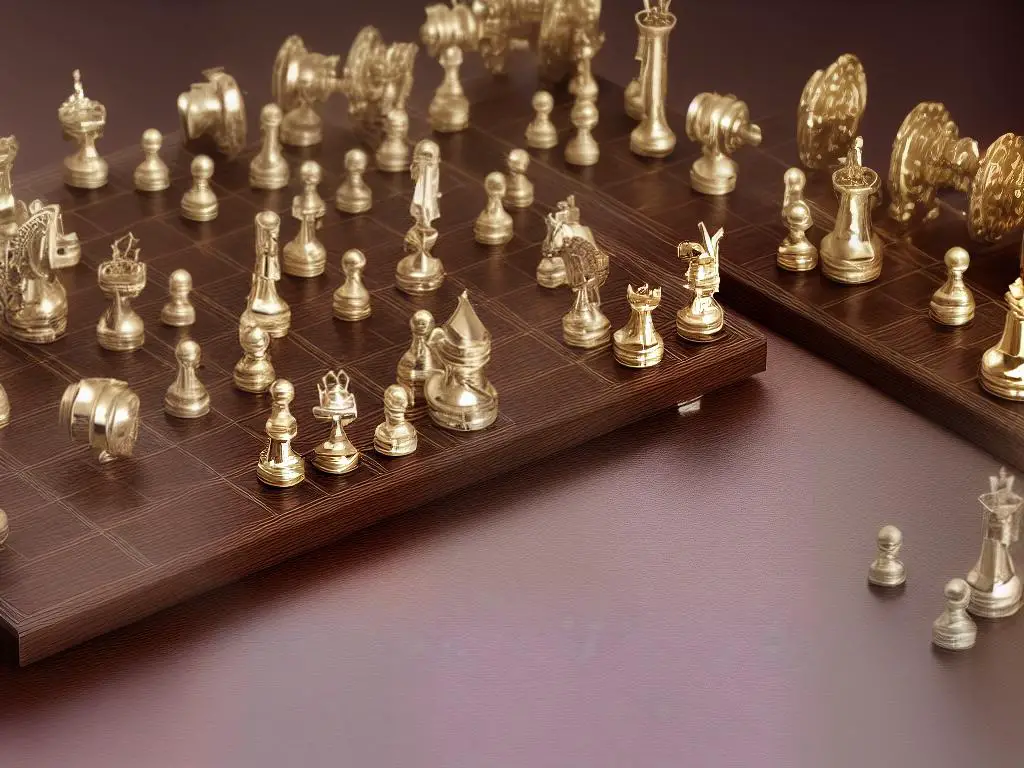
Travel Chess Sets
Travel Chess Sets
Take your chess game with you wherever you go with travel chess sets! Perfect for road trips, plane rides, or quiet afternoons at the park, these handy sets ensure you’ll never miss an opportunity to challenge your friends or hone your skills.
Designed with convenience and transportability in mind, travel chess sets typically feature smaller, magnetic pieces that stick to the board, preventing them from sliding or getting lost while en route to your next destination.
The folding board not only offers a smooth playing surface but also functions as a compact storage case for all your game components. Simply pack up the pieces inside, and tuck your travel chess set into a bag or backpack to have a game of strategy and skill wherever the adventure takes you.
Available in a variety of styles and materials, such as lightweight plastic or even fabric roll-up boards, travel chess sets cater to your personal preferences and make a practical addition to your on-the-go entertainment arsenal. Worry no more about leaving your beloved chess set at home; with a travel chess set, the world becomes your gameboard.
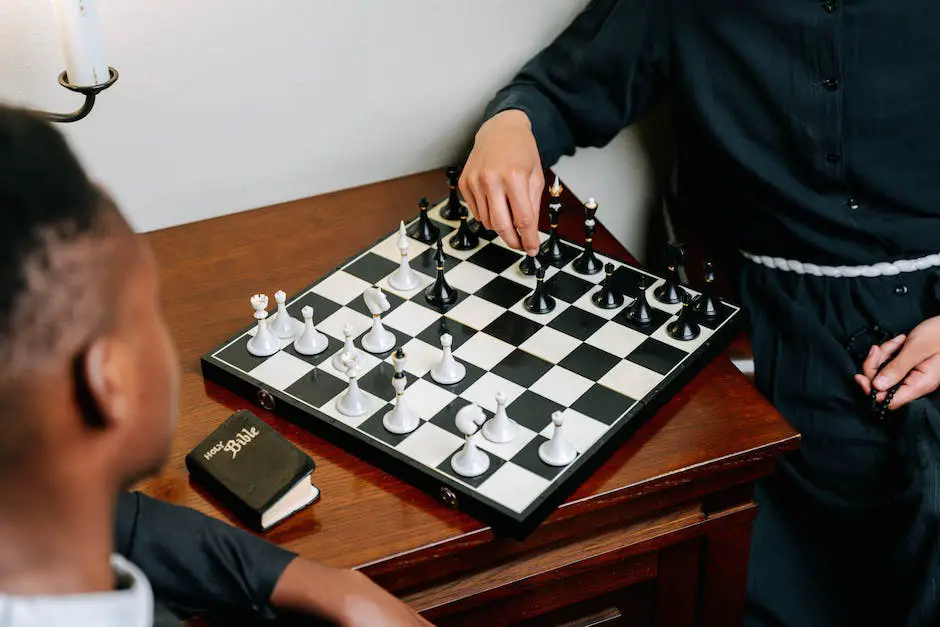
Themed Chess Sets
Immerse Yourself in a World of Imagination with Themed Chess Sets
If you find yourself easily transported into the realms of your favorite movies, books, or historical events while playing chess, themed chess sets are just the thing for you. These distinctive and exquisitely designed chess sets offer a perfect blend of artistry, creativity, and nostalgia, elevating your game to a whole new level of excitement and involvement.
Picture yourself commanding an army of Star Wars characters or Harry Potter-themed pieces, moving across the chessboard with a sense of cinematic flair. Or perhaps you’d rather step into the shoes of legendary kings and queens from a bygone era, skillfully maneuvering your historical chess pieces in a bid to achieve checkmate. Themed chess sets can bridge the gap between reality and imagination, making the game even more engaging and thrilling.
The sheer variety of themed chess sets available is astounding, catering to an extensive range of interests and preferences. Are you a die-hard comic book fan? There’s a Marvel superhero chess set waiting for you. Are you passionate about animals or mythical creatures? Try out an animal kingdom or dragon-themed chess set to bring an adventurous touch to your game. These striking sets also make for captivating display pieces and treasured collectibles, adding character to your space or collection.
In addition to their visual allure, themed chess sets are often crafted with impeccable attention to detail, using high-quality, durable materials such as hand-painted resin, wood, pewter, or glass. This ensures that your set not only looks stunning but also stands up to the test of time, making for years of enjoyable gameplay.
In essence, themed chess sets have the potential to breathe new life into your chess experience by incorporating elements of your favorite stories, characters, or historical figures. So why not treat yourself, or a loved one, to a themed chess set that captures the essence of their passions, ensuring a truly memorable and immersive game of chess?
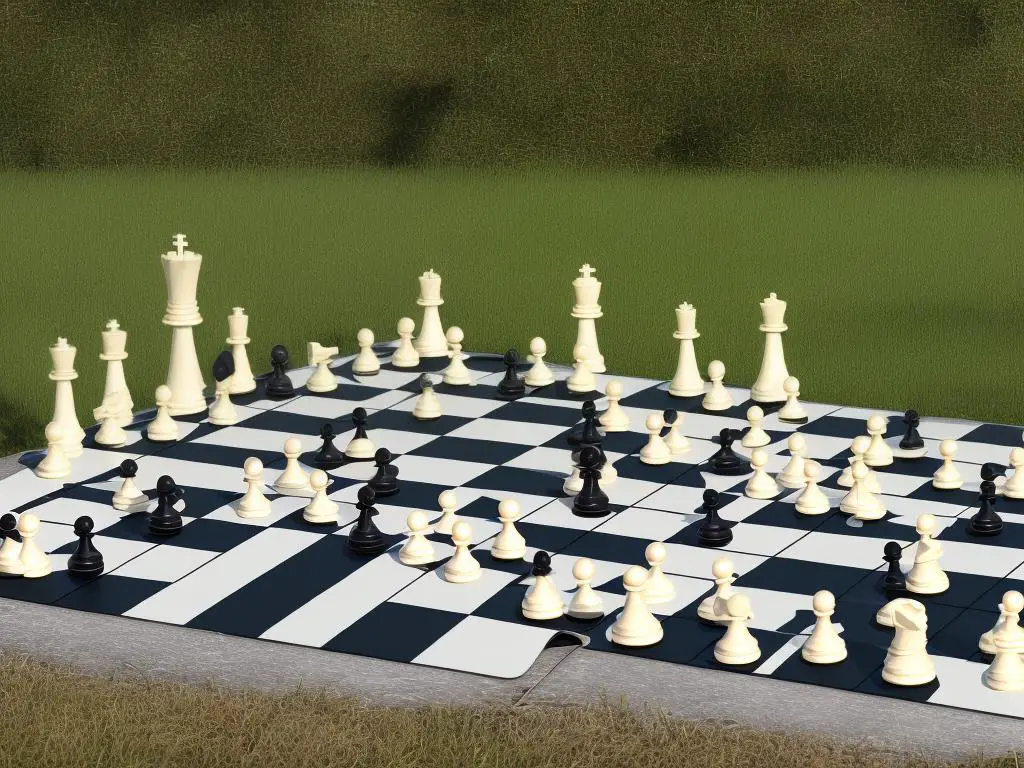
Electronic Chess Sets
Electronic Chess Sets: Taking Your Chess Game to the Next Level
Looking for a exciting twist on the classic game of chess? Electronic chess sets are here to provide you with a unique and innovative playing experience. Imagine being able to challenge yourself, learn new strategies, and perfect your game all with the assistance of advanced technology. With their various features and capabilities, electronic chess sets offer something for everyone, from beginners to seasoned players.
Integrated Computer Technology
One of the key features that sets electronic chess sets apart is the integrated computer technology, which provides multiple skill levels for players to choose from. Whether you are just starting out or sharpening your advanced skills, these sets offer an adaptable challenge to help improve your techniques.
Sensor Technology for Automatic Move Detection
Another impressive aspect of electronic chess sets is the sensor technology that is built into the board and pieces. This allows for automatic move detection and removes the need for manual input. As you move your pieces around the board, the sensors keep track of your moves, ensuring complete accuracy and seamless gameplay. Plus, this feature allows the computer to provide you with instant feedback on your moves, creating a unique learning experience.
Connectivity to Online Platforms and Tutorials
Aside from their built-in features, many electronic chess sets also provide connectivity to various online platforms. This means you can take your game beyond the confines of your home and face off against players around the world. Additionally, some sets offer access to online tutorials, breaking down complex strategies and facilitating learning in a way that wasn’t possible with traditional chess sets.
The Perfect Fusion of the Old and the New
For players who prefer a more tangible touch, many electronic chess sets still look and feel like classic chess sets with well-crafted pieces and wooden boards. This makes them a perfect fusion of the old and the new, satisfying players who value tradition while still offering the benefits of advanced technology.
In Conclusion
Electronic chess sets offer a wealth of options for players of all skill levels. If you’re looking to enhance your chess experience with interactive features and a personalized challenge, these high-tech sets might be the perfect addition to your game collection. So why not give it a try and embrace the future of chess?
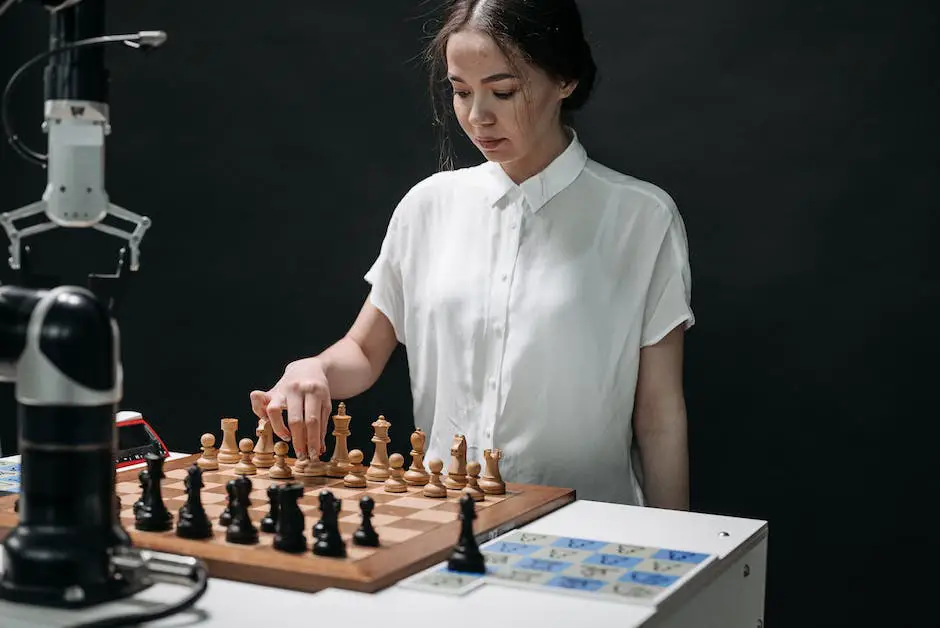
3D and Vertical Chess Sets
3D and Vertical Chess Sets – Taking Chess to New Heights
Imagine playing a game of chess that defies gravity and takes you on a journey through multiple planes of strategy and tactics. Enter the world of 3D and vertical chess sets – a mashup of creativity, artistry, and intellect that adds a whole new level of excitement to the well-loved classic.
3D Chess Sets – A Mind-Bending Perspective
3D chess sets typically comprise of multi-layered boards with transparent or opaque platforms, giving players a mind-bending perspective as they move their pieces across different levels. This not only creates an added challenge for seasoned players but also intrigues beginners by pushing the boundaries of how chess is conventionally played.
From Star Trek-inspired designs to handmade wooden masterpieces, these sets come in various themes and materials that cater to a wide array of preferences and budgets. They’re perfect conversation starters for your next gathering, entrenching your reputation as a trailblazer in the world of board games.
Vertical Chess Sets – A Marriage of Chess and Art
For those who want to combine their love of chess with an appreciation for home decor, vertical chess sets come to the rescue. These wall-mounted iterations not only save space but double as lively interactive art pieces.
With wooden frames and magnetic pieces, vertical chess sets ensure that your games can last as long as you please – be it hours, days, or even weeks – without taking up precious table space. They’re perfect for communal spaces like office break rooms, coffee shops, or even your own living space, transforming the game into a minimalist centerpiece that passersby can’t help but admire.
Are You Ready to Make Your Move?
So whether you’re looking to spice up your chess games with an added layer of complexity or simply want to showcase your passion with style – 3D and vertical chess sets have got you covered. It’s time to embark on a whole new adventure in the realm of chess; are you ready to make your move?
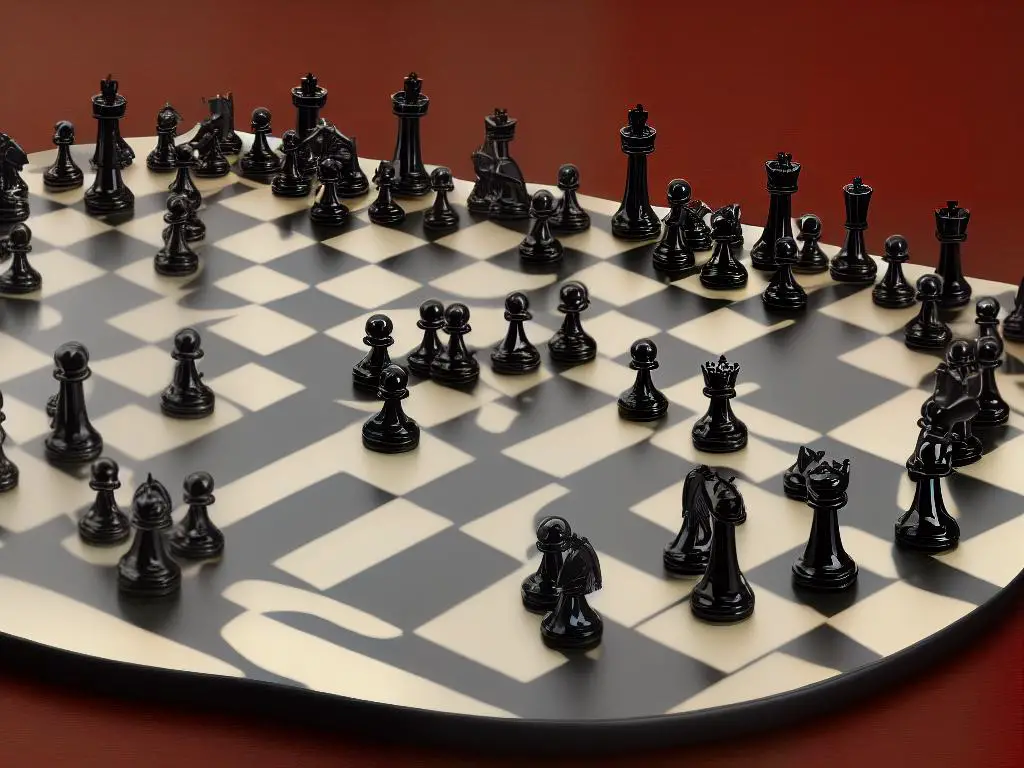
As the world of chess continues to thrive and expand, so too does the variety of chess sets available for avid players and collectors alike. Whether you prefer the elegance of a glass set or the portability of a travel set, there is a chess set to cater to your individual preferences and needs. By understanding the multitude of options offered, you can choose the perfect chess set that not only challenges and delights you but also serves as a reflection of your personal style and interests. So, delve into the fascinating world of chess sets and enjoy the ever-evolving beauty of this strategic game.

